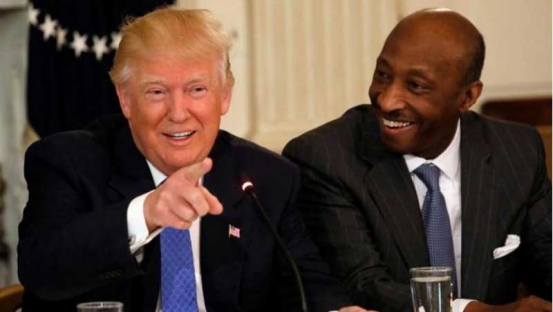×
The Standard e-Paper
Join Thousands Daily

Merck & Co Inc Chief Executive Kenneth Frazier resigned from U.S. President Donald Trump's American Manufacturing Council on Monday, saying he was taking a stand against intolerance and extremism.
A gathering of hundreds of white nationalists in Virginia took a deadly turn on Saturday when a car plowed into a group of counter-protesters and killed at least one person.